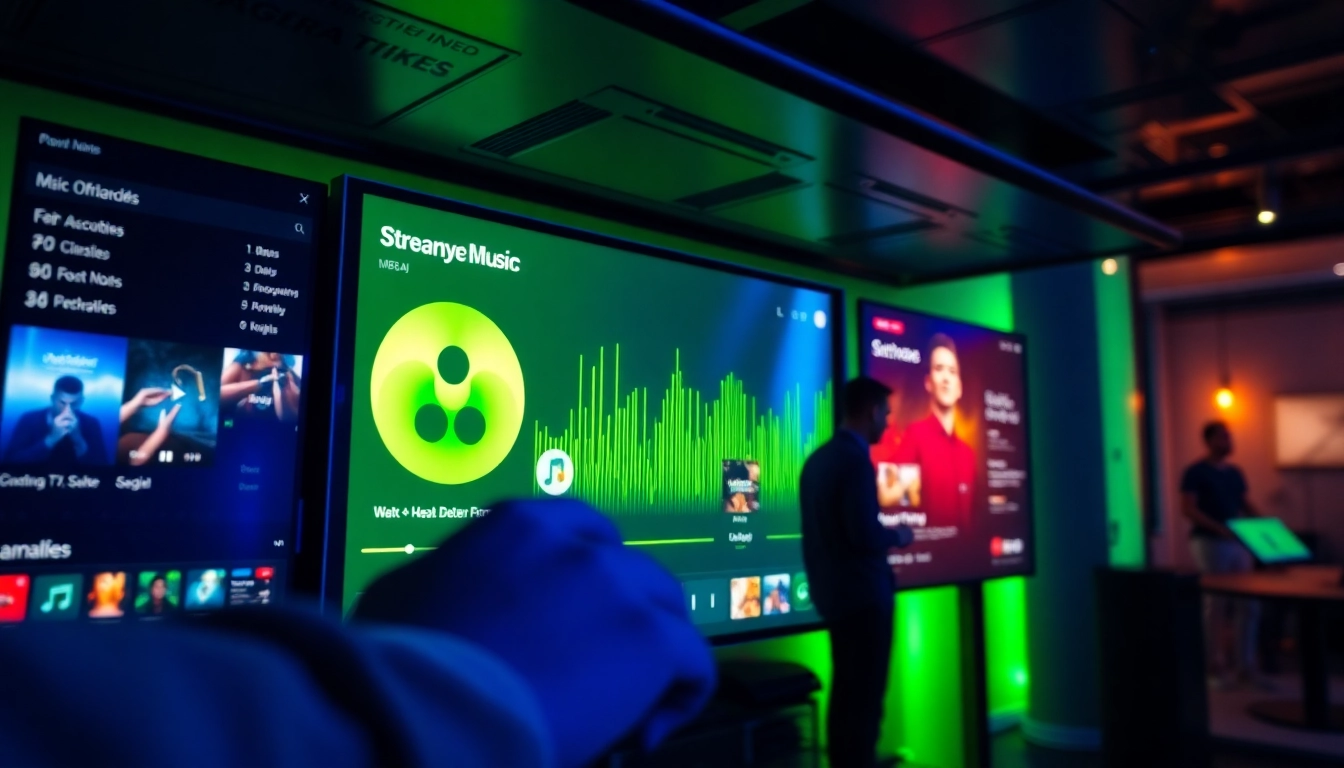Understanding Music Pitching
What is Music Pitching?
Music pitching is the process through which artists and songwriters present their music to industry professionals, influencers, and curators for placement in various platforms, such as playlists, radio stations, and even traditional media. Essentially, it is a sales pitch aimed at convincing someone to promote or highlight one’s music. This could include submitting tracks for playlists on streaming services like Spotify and Apple Music, approaching music bloggers, or even seeking opportunities to connect with record labels.
The Importance of Music Pitching in the Industry
The role of music pitching has gained unprecedented significance in today’s music landscape. With the rise of digital platforms, artists can no longer depend solely on labels for exposure. Instead, they must proactively put themselves out there. According to a report by music pitching specialists, effective pitching can significantly enhance visibility, build brand recognition, and ultimately, drive sales. This is especially crucial for independent artists who may lack the marketing budgets and connections typically enjoyed by major labels.
Common Myths About Music Pitching
Many misconceptions surround music pitching, which can lead to missed opportunities for artists. One prevalent myth is that pitching is solely about sending as many emails as possible to a vast list of contacts. In reality, quality trumps quantity. Tailoring your pitch to specific targets generally results in higher engagement than sending a generic pitch. Additionally, some believe that only established artists can successfully pitch their music, when in fact, an informed and professional approach can yield successful outcomes for emerging talents as well.
Preparing Your Music for Pitching
Creating a Professional Demo
First impressions matter, particularly in the music industry. Therefore, creating a polished demo is vital. A professional demo typically includes two to three songs that best showcase your musical style and abilities. It should be well-recorded, mixed, and mastered. Investing time and resources into a quality production can make a significant difference in how your music is perceived. Furthermore, ensure your demo is properly formatted and easily accessible, allowing industry personnel to listen to it without hassle.
Understanding Your Audience
Knowing your audience is crucial for effective targeting in music pitching. This involves understanding not only the listeners of your genre but also the curators who might promote your music. Research the platforms you are targeting—be it Spotify playlists, radio stations, or music blogs. Identify what those curators usually look for in submissions, the type of music they support, and their submission guidelines. Tailored pitches that align your music with the curators’ preferences will yield better results than a blanket approach.
Crafting the Perfect Pitch
A well-crafted pitch is your best tool in the music pitching arsenal. Start with an engaging subject line that captures attention. Your musical message should be concise yet compelling; detail why your music matters and what sets it apart from others. Include relevant metrics, such as previous streaming numbers, social media engagement, or any notable accolades. Additionally, tailor your pitch to the recipient. Mention how your music aligns with their playlist or blog theme, and make sure to include links to your demo and social media profiles.
Where to Pitch Your Music
Identifying the Right Platforms
The digital age has transformed how music is marketed and consumed. Identifying the right platforms for pitching your music is crucial. Consider platforms like SubmitHub for reaching music bloggers, Spotify curators, and other influencers. Be selective and focus on those who feature music that resonates with your sound and style. For instance, if you create electronic music, targeting platforms and playlists known for electronic genres will increase your chances of success.
Leveraging Social Media for Music Pitching
Social media has become a powerful tool in the music industry, especially for independent artists. Platforms like Instagram, Twitter, and TikTok can amplify your reach. Engage with curators and influencers in your genre by sharing your music, tagging them, or interacting with their content. Building relationships on these platforms can establish a connection that might lead to a pitch opportunity down the line. Additionally, consider creating shareable content such as behind-the-scenes videos, lyric snippets, or teasers to generate interest in your music.
Building Relationships with Curators
Networking is crucial in the music industry. Establish and nurture relationships with curators and industry professionals. Start by following them on social media and engaging with their content. Attend music industry events or workshops to meet them in person. Even informal settings such as music festivals can be great opportunities to connect. A genuine relationship can lead to more substantial pitching opportunities and even mentorship, which can be invaluable in your music career.
Best Practices for Effective Music Pitching
Timely Submissions and Follow-Ups
Timing is essential in music pitching; ensure that you submit your music well ahead of any relevant release dates. For example, many platforms and blogs prefer receiving submission at least 4-6 weeks before a release to feature the music properly. After sending your pitch, follow up after a week or two if you haven’t received a response. A polite follow-up can remind curators of your submission without coming off as pushy.
Personalizing Your Approaches
A personalized pitch often yields better results than a generic email blast. Take the time to research the person or entity you are pitching to and tailor your message accordingly. Refer to a previous work of theirs that you admire and explain how your music relates. This demonstrates genuine interest and effort, making curators more likely to listen to your track.
Measuring the Impact of Your Pitches
Once you have started sending out pitches, it’s crucial to measure their effectiveness. Track which platforms respond positively and what types of pitches yield the best results. Use analytics tools to monitor your music streaming stats post-pitch, such as increase in plays or followers. This data can help refine your pitching strategy over time and inform how to adjust future campaigns for better success.
Advanced Strategies for Standout Music Pitching
Utilizing Data and Analytics
In the digital age, data can inform every decision. Utilize streaming and social media analytics to understand your growing fanbase. Tools such as Spotify for Artists and Google Analytics can provide insights into listener demographics and engagement metrics. By understanding who listens to your music and how they engage with it, you can better tailor your pitches to highlight aspects that resonate with your target audience.
Collaborating with Influencers and Bloggers
Influencer marketing is not just limited to traditional brands; it has become increasingly important in the music world as well. Partnering with influencers or bloggers can substantially expand your audience. Seek out influencers whose audience aligns with your target demographic. Propose collaborations; this could be through sponsored posts about your music, music videos, or feature articles. A well-executed influencer partnership can amplify your reach and lend additional credibility to your music.
Scaling Your Music Pitching Efforts
As your music career grows, consider scaling your pitching efforts. This might involve enlisting the help of a publicist or using specialized services that handle music pitching. Another option is to attend more industry events to connect with multiple curators and influencers at once. By shifting your focus from individual pitches to strategic campaigns, you can enhance your reach and efficiency. Ensure to maintain the personal touch that demonstrates your commitment and authenticity throughout the scaling process.



